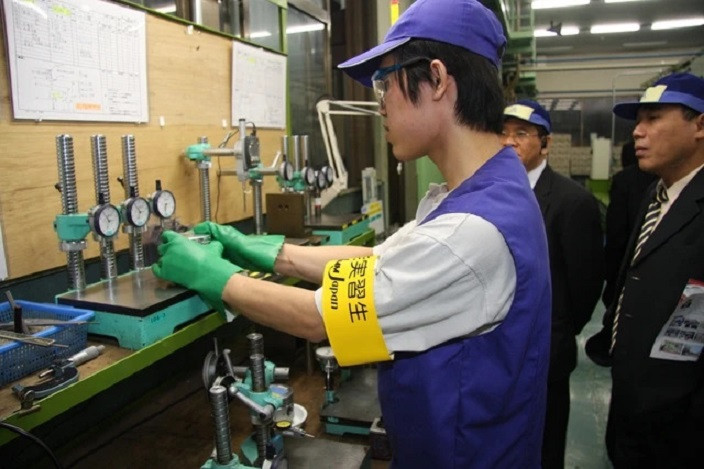
These are two areas that Việt Nam has advantages, according to the ministry’s survey.
Deputy Minister of Labour, Invalids and Social Affairs Nguyễn Bá Hoan made the proposal during his recent meeting with Nakano Hedeyuki, Japanese vice minister of justice.
Hoan said in recent years, the number of Vietnamese labourers working in Japan has accounted for over 50 per cent of the total number of the Vietnamese working abroad every year.
The two sides an have jointly conducted internship and exchange programmes such as technical internship, specified skilled workers, bringing Vietnamese nurses and midwives to work in Japan under the Việt Nam - Japan Economic Partnership Agreement.
Hoan said in March, the ministry coordinated with the Japanese side to successfully organise an exam to assess skills in nursing care and agriculture.
According to Nakano Hedeyuki, on March 15, the Japanese Government submitted to parliament the bill on reforming foreign internship programme as Japan wants to retain immigrant workers longer to address the labour scarcity due to an aging population. The reform will be implemented through a new programme focusing on developing skills and protecting workers' rights.
"The Japanese government wants to attract foreign talent to work in the country for a long time, improve their skills and, importantly, prevent the risk of abusing workers' rights,” he said.
The new programme, if approved by the Japanese parliament, will take effect from 2027. In the future, Việt Nam will be the first priority partner in labour, he said, hoping that the two sides will soon start negotiations to exchange and discuss the signing of the Memorandum of Cooperation.
Nakano Hedeyuki said that Japan currently has 12 fields and occupations that receive specified skills. The Japanese Government recently added four specified skilled occupations that foreigners can work in as 'skilled workers', including road transport, railway transport; forestry and timber to alleviate labour shortages in these occupations.
He hopes that Việt Nam will conduct surveys to provide specific and accurate information which serve as a basis for Japanese agencies to consider continuing to expand recruiting workers in skilled professions. VNS